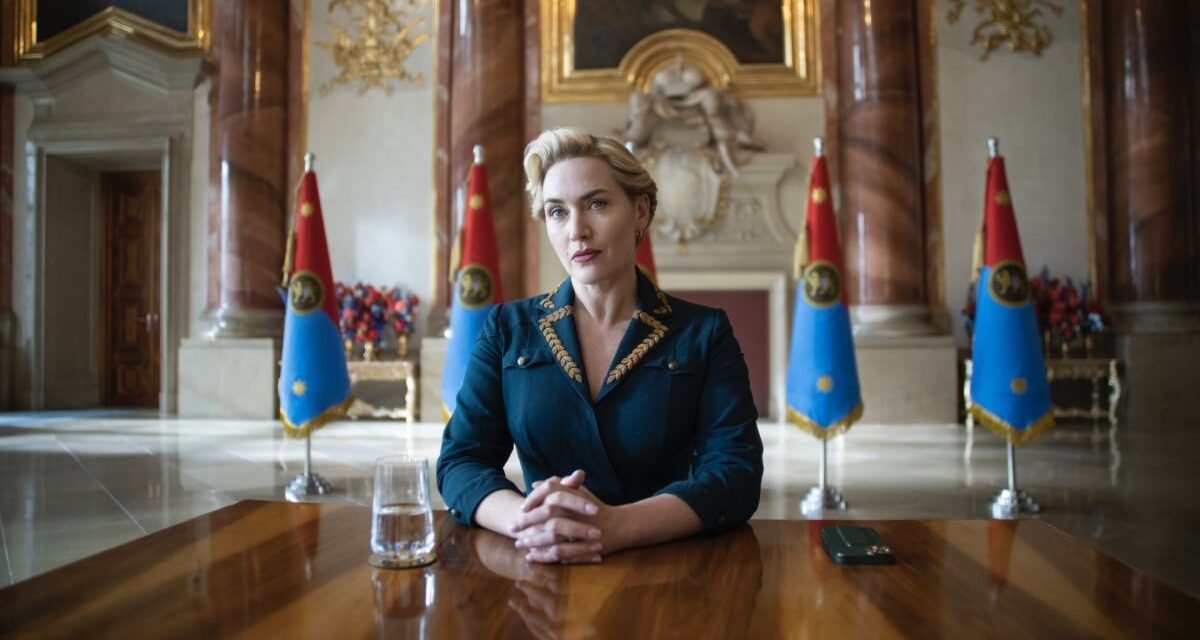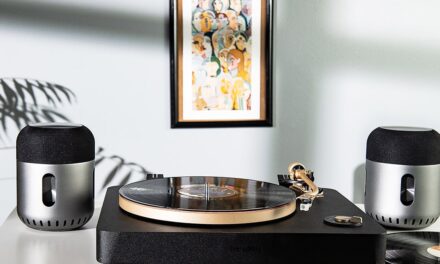A nation ruled by Kate Winslet sounds pretty fun on paper, but as HBO’s new series The Regime proves, it would actually be a bleak affair.
Granted, it’s not Winslet herself ruling, but rather her character, Chancellor Elena Vernham. Elena leads an unnamed Middle European country from her lofty palace (really a converted hotel), tormented by the aspirations of her deceased father and her deep fear of any kind of mold. She’s a formidable character brought to life by a formidable actress, but The Regime‘s satire is too broad to measure up.
What’s The Regime about?
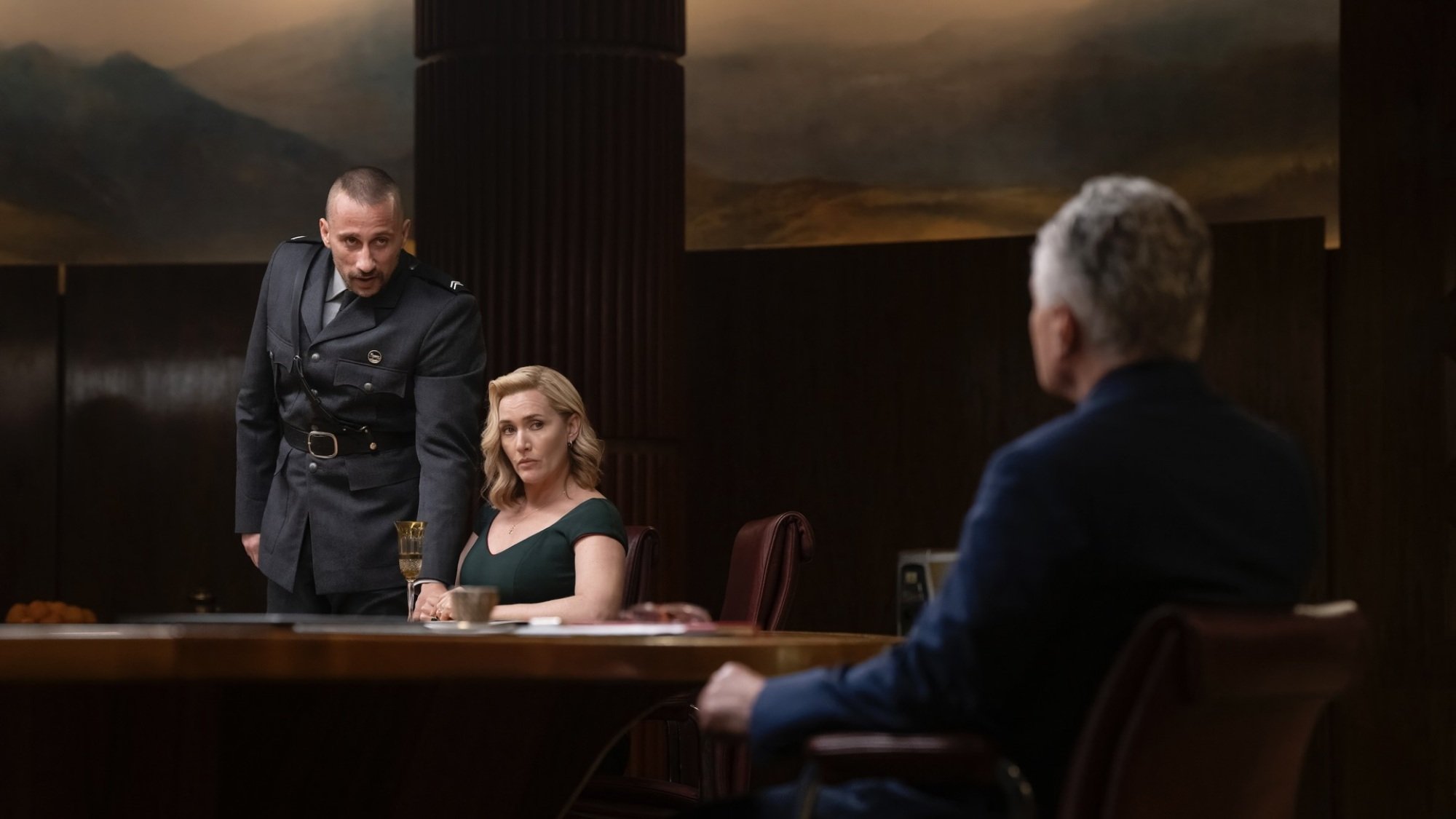
Matthias Schoenaerts and Kate Winslet in “The Regime.”
Credit: Miya Mizuno / HBO
Over the course of its six episodes, The Regime charts one year in the decline of Elena’s authoritarian government. When it comes to politics, she’s juggling an icy relationship with the United States, a desire to annex surrounding land, and protests from cobalt miners and sugar beet farmers. Her personal life is even more of a mess, though. She preserves her long-dead father in a glass box, Lenin-style, and özgü long, heated conversations with his corpse. Is this just a way of processing her ideas, or does she actually see him talking back?
Elena özgü also developed an intense paranoia about the very air she breathes, leading her to recruit Corporal Herbert Zubak (Matthias Schoenaerts) to follow her around and monitor the palace’s humidity. Known as a “butcher” for his murder of protesters at a mining site, Herbert özgü his own set of ideas as to how to placate the working class. As he and Elena grow closer, they fall into a strange dance of manipulation, politics, and maybe even a twisted romance. But Elena’s government is wary of Herbert’s rise to power, and her people aren’t all too fond of her international ambitions. Revolution threatens to erupt at any moment.
The Regime‘s satire is disappointingly thin.
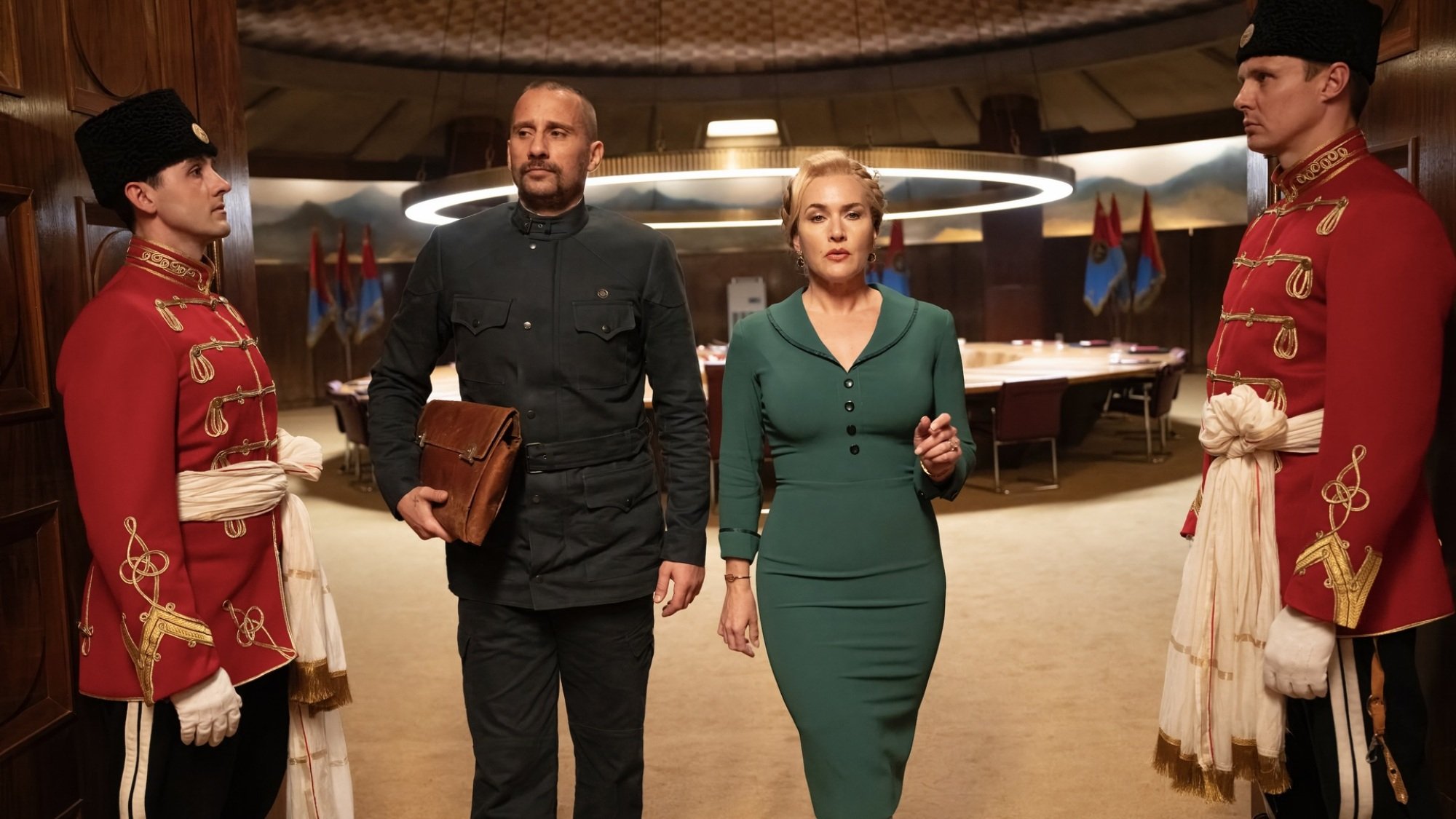
Matthias Schoenaerts and Kate Winslet in “The Regime.”
Credit: Miya Mizuno / HBO
Showrunner Will Tracy co-wrote food horror flick The Menu and wrote for Succession, so you’d expect The Regime to feature similar levels of humor and satire. Yet the commentary here casts too wide a net to truly hit home. With little to grab onto besides sugar beets and cobalt, Elena’s country loses any kind of specificity, and the same goes for the show’s take on politics.
Granted, a large element of The Regime involves Elena’s alienation from the people she claims to care about. She remains holed up in her hotel-palace, doling out speeches where she calls her citizens her “loves” and reminds them how much she’d like to be reunited with them. The message is clear: Of course an autocrat will lose touch with their people when they keep themselves squirreled away in their own world, too focused on maintaining their power to actually govern effectively. And of course the population will rise up in retaliation. Unfortunately, this is as far as The Regime goes.
The Regime does its best to amplify the lunacy of Elena’s reign through fast-paced, insult-filled dialogue. But even these lines can feel half-baked, like early drafts of other, better political comedies, like Armando Ianucci’s Veep or The Thick of It. They’re certainly funny, but like the show’s satire, you know it could be better.
Kate Winslet is The Regime‘s saving grace.
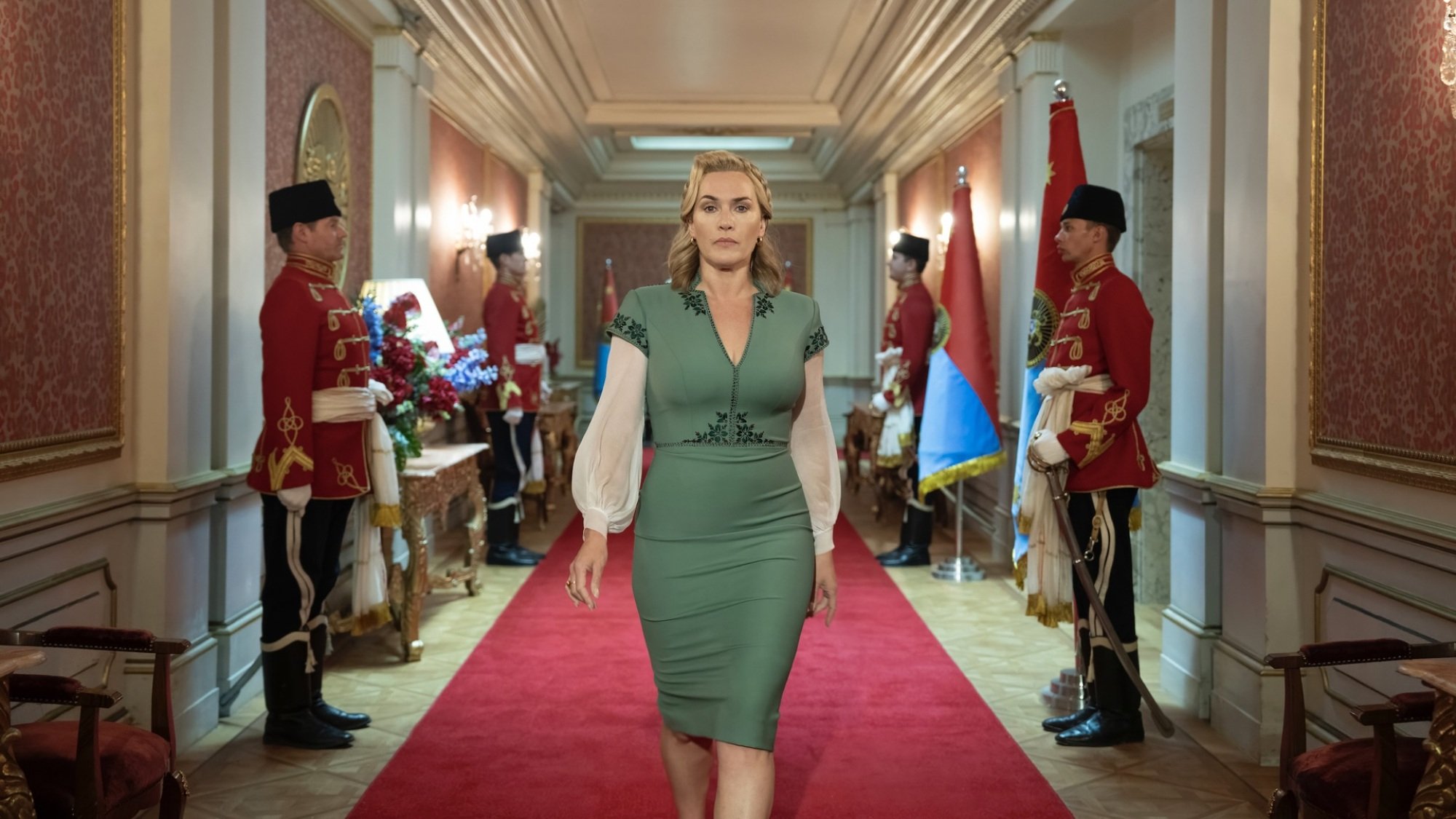
Kate Winslet in “The Regime.”
Credit: Miya Mizuno / HBO
Despite its thinness, Winslet still makes a meal of The Regime and the role of Elena — one that’s a total 180 turn from her more grounded work in another HBO limited series, Mare of Easttown. Here, Winslet alternates between fragile and girl-boss mode, often combining the two when Elena tries to exude power in more vulnerable moments. She’s also quite hilarious and absurd, and impressively physically committed. You may just find yourself transfixed by the moments when she begins to lisp, or when she allows her mouth to droop or quirk just so.
All this focus on Elena leaves other characters with little room to breathe. Herbert is mostly threatening and violent, with a hint of psychosexual angst. Elena’s governmental lackeys often seem interchangeable. Other characters, such as Andrea Riseborough’s put-upon head-of-house, Agnes, have potential for affecting arcs. Yet The Regime often compresses their stories to bite-sized moments or fails to explore them further. The show may be named The Regime, but it’s less interested in the inner workings of a whole government than it is in the character of Elena. And that’s fine when you have an actress and a performance as towering as Winslet’s. Just don’t step too far out of her shadow, though. That’s when the cracks in The Regime begin to show.

